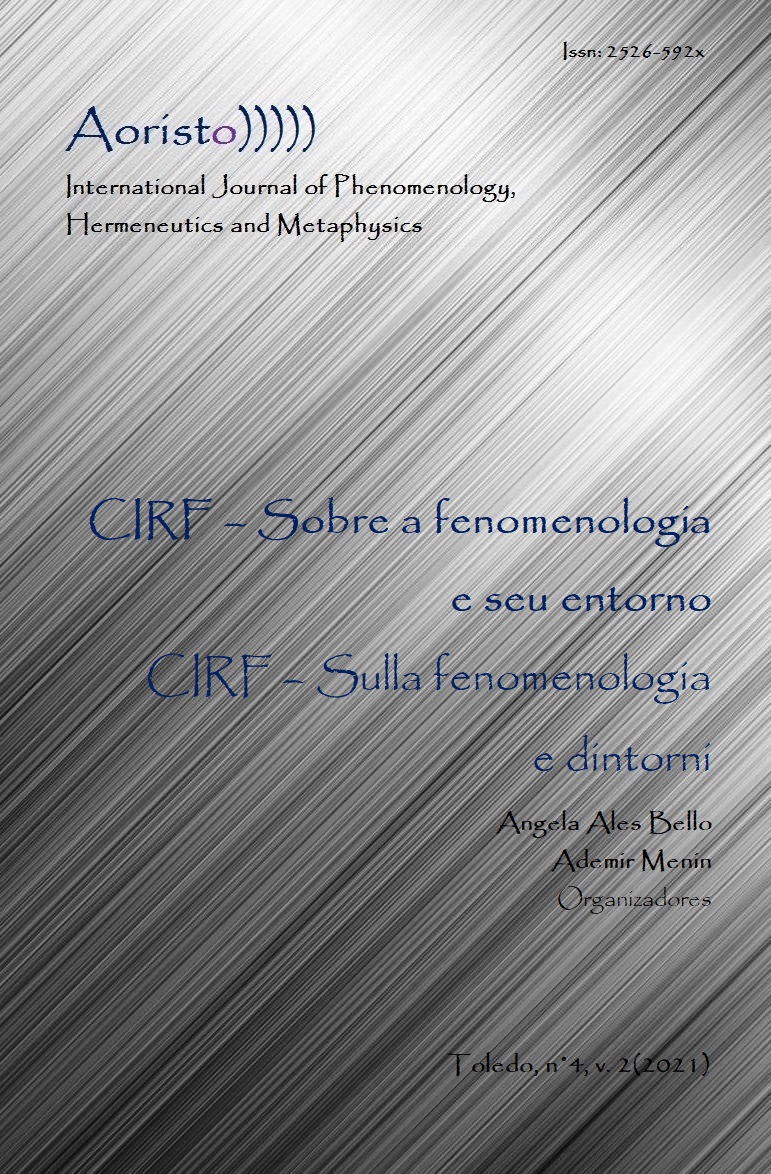Neurolaw between epistemology and ontology:
phenomenology and cognitive neurosciences
DOI:
https://doi.org/10.48075/aoristo.v4i2.27981Parole chiave:
Neurolaw, Ontology, Phenomenology, Cognitive neurosciencesAbstract
In the first part of the paper, I present some problematic concepts in cognitive neuroscience, from a philosophical point of view, like causality and Law. These concepts open ontological questions, that we develop proposing a mechanistic interpretation of cognitive neuroscience, compare to a phenomenological investigation of human experience. General descriptions of mental states and
intentionality allow us to investigate different forms of causation, not reducible to “material causes”. By contrast, cognitive neurosciences are specialized to investigate the latter form, being interpretable both like a bound and an advantage. In the second part of the paper we will resort to the presented epistemological descriptions in order to investigate social cognition. We will discuss
the case or moral cognition in order to preserve emergent properties in the human experience, in a complementary way with” cognitive mechanisms”. This argumentation will help us to better define the Neurolaw field of researches, allowing us to discern different forms of responsibility of the human acts with regard to different causal factors.
Downloads
Pubblicato
Come citare
Fascicolo
Sezione
Licenza
Copyright (c) 2021 Aoristo - International Journal of Phenomenology, Hermeneutics and Metaphysics

Questo lavoro è fornito con la licenza Creative Commons Attribuzione - Non commerciale - Non opere derivate 4.0 Internazionale.
Copyright Notice
1. I grant the AORISTO – International Journal of Phenomenology, Hermeneutics and Metaphysics the first publication of my article, licensed under Creative Commons Attribution (which allows sharing of work, recognition of authorship and initial publication in this journal).
2. I confirm that my article is not being submitted to another publication and has not been published in its entirely on another journal. I take full responsibility for its originality and I will also claim responsibility for charges from claims by third parties concerning the authorship of the article.
3. I also agree that the manuscript will be submitted according to the Aoristo’s publication rules described above.
License Creative Commons
This work is licensed under a Creative Commons Atribuição-NãoComercial-CompartilhaIgual 4.0 Internacional, which allows you to share, copy, distribute, display, reproduce, in whole or in part, for as long as there is no commercial purpose, and authors and source are cited.


